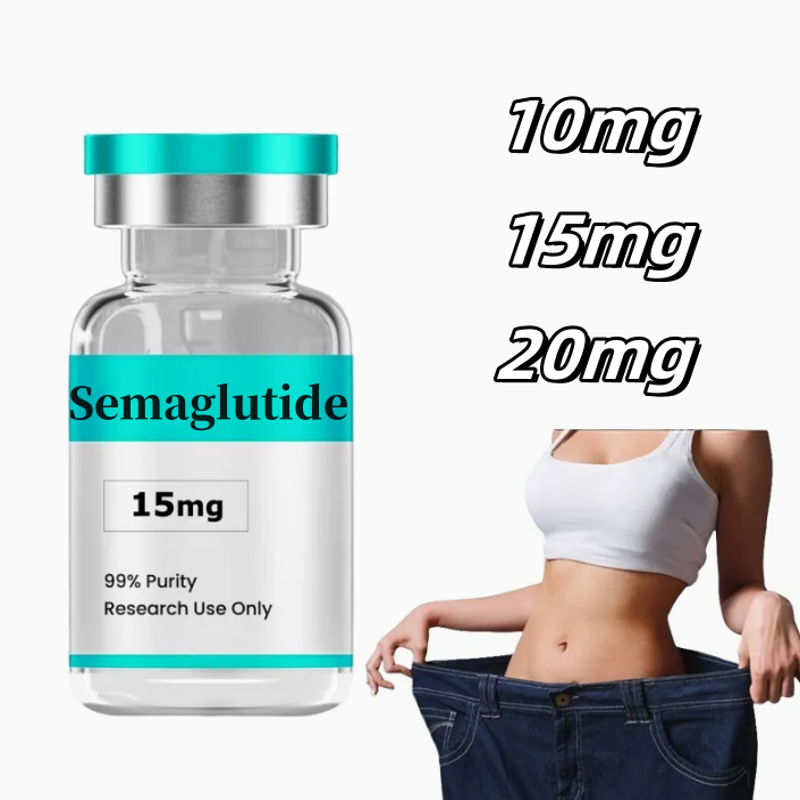-
Categories
-
Pharmaceutical Intermediates
-
Active Pharmaceutical Ingredients
-
Food Additives
- Industrial Coatings
- Agrochemicals
- Dyes and Pigments
- Surfactant
- Flavors and Fragrances
- Chemical Reagents
- Catalyst and Auxiliary
- Natural Products
- Inorganic Chemistry
-
Organic Chemistry
-
Biochemical Engineering
- Analytical Chemistry
-
Cosmetic Ingredient
- Water Treatment Chemical
-
Pharmaceutical Intermediates
Promotion
ECHEMI Mall
Wholesale
Weekly Price
Exhibition
News
-
Trade Service
Diabetes is a common metabolic disorder The incidence rate is very high Of course, the residents' awareness is very high A lot of people know that high blood sugar is bad for the body, and they need to take medicine or insulin to reduce blood sugar But what's going on with diabetes? Many people don't know about it Let's take this opportunity to introduce it "Diabetes", as the name implies, means there is sugar in the urine Why do you have sugar in your urine? The root cause is that there is too much sugar in the blood, which leaks out when passing through the kidney In fact, the word diabetes is not accurate enough This disease should be called "hyperglycemia" like hypertension and hyperlipidemia The main manifestation of diabetes is the abnormal increase of blood sugar, which often appears together with hypertension and hyperlipidemia, which is commonly known as "three highs"
Why is blood sugar high? Many people's answer is: insulin is not enough! The answer is not correct In fact, diabetes can be divided into two types: type 1 and type 2, Type 1 diabetes is mainly in adolescents, mainly due to congenital insufflation of insulin The well-known diabetes actually refers to type 2 diabetes The main cause of type 2 diabetes is not the lack of insulin secretion, but the decreased sensitivity of body cells to insulin They can't follow the instructions of insulin to use or store ordinary sugar as soon as possible, which leads to the fact that the sugar in the blood has not been purchased, so they have to constantly wander in the blood vessels, and the blood sugar is naturally high Let's take a look at a few scenarios: Scene 1: one day when you are full of food, the food is digested and absorbed in the intestine, and the glucose is absorbed into the blood through the intestine At this time, the blood sugar begins to increase The brain receives the signal of high blood sugar, and gives instructions to the islet cells to secrete insulin as soon as possible The insulin flows through the blood to the cells of the whole body These cells start to store or use sugar quickly, so the blood sugar slowly drops Scenario 2: what about diabetes? As soon as blood sugar rises, insulin is also secreted into the blood, informing all cells of the body to store or use the sugar in the blood as soon as possible But the cell's "doorbell" is broken Insulin knocks on the door for half a day The cell doesn't respond The brain doesn't see the blood sugar drop! Quickly let the islet cells desperately secrete insulin, let more insulin "knock on the door", so long time of high-intensity labor, it will not be long before the islet cells are exhausted, unable to secrete insulin This time is the later stage of diabetes The islet cells are completely destroyed The patient must inject insulin to reduce blood sugar In the early stage of diabetes development, the cell's "insulin doorbell" is broken We call it "insulin resistance"! Now you know? Diabetes is not mainly insufficiently insulin, but the body cells do not respond to insulin, resistance! So what causes insulin resistance? Experts and scholars have concluded that obesity, hypertension, hyperlipidemia, hyperuricemia and fatty liver are the "culprits" of insulin resistance! In short, if there are these problems, even if we don't find high blood sugar temporarily, we are not far from diabetes! I would like to express a point here: diabetes, especially type 2 diabetes, is actually one of the reflections of the overall cell metabolism of the body High blood sugar indicates that our body is not so normal, and there are other indicators of metabolic abnormalities (such as hyperlipidemia, hyperuricemia, etc.) At this time, in addition to taking hypoglycemic drugs or insulin, we should also adjust other accompanying problems, such as hypertension, hyperlipidemia, hyperuricemia, and try to lose weight, so as to really control the blood sugar problem Is peptide effective for diabetes? With the continuous in-depth research of researchers around the world, it has been found that small molecule active peptide is different from the mechanism of drug action It can directly act on β cells, stimulate cell proliferation, induce cell regeneration, and prevent islet cell apoptosis, so as to dynamically regulate the number of β cells When the blood glucose level is low, small molecule active peptide will not induce insulin secretion to ensure its function and not increase the blood pressure The risk of sugar The results of medical clinical trials on mice showed that the small molecule active peptide could significantly reduce the blood glucose of STZ induced diabetic mice, enhance their glucose tolerance, and inhibit the weight loss of diabetic mice Insulin itself is a peptide chain composed of 51 amino acid chains, and small molecule active peptide is a peptide chain combination rich in a variety of amino acids It is very close to the active peptide secreted by human body, without any side effects Therefore, as a daily supplement for prediabetes, diabetic patients or diabetic complications, small molecule active peptide can increase physical strength, accelerate organ repair, assist islet cells to secrete insulin, and assist in regulating blood glucose The function of small molecule active peptide on diabetes is as follows: 1 Activate and repair islet cells, enhance their functions; 2 Promote insulin synthesis by islet cells; 3 It has two-way regulating effect When the blood sugar is high, it can be reduced and when it is low, it can be increased No effect on normal blood glucose; 4 Improve the antioxidant capacity of the body, reduce the production of oxidation products, protect the liver and kidney, reduce the degree of damage, and reduce the occurrence of diabetic complications 5 Improve human immunity, prevent and alleviate its complications; 6 It only needs a very small amount to play a regulatory role Peptide, with its original technology and unique way of administration, solves three major problems in the treatment of diabetes by improving the metabolism of various tissues and cells in the body, increasing the secretion of insulin in the body itself, and enhancing the sensitivity of the receptor on the surface of insulin target cells: eliminating insulin resistance, rapidly reducing and stabilizing glucose; restoring insulin function, increasing the secretion of insulin, and improving the level of insulin The activity of the receptor promotes the binding of insulin to the receptor Thus, the three wishes of diabetic patients are satisfied: first, blood sugar is stable and does not rebound, and life-long medication is ended; second, three meals a day can satisfy, eat well, dare to eat, dare to drink, dare to play and dare to enjoy; third, prevention and elimination of complications, and recovery of physical strength, energy and life span of healthy people.







